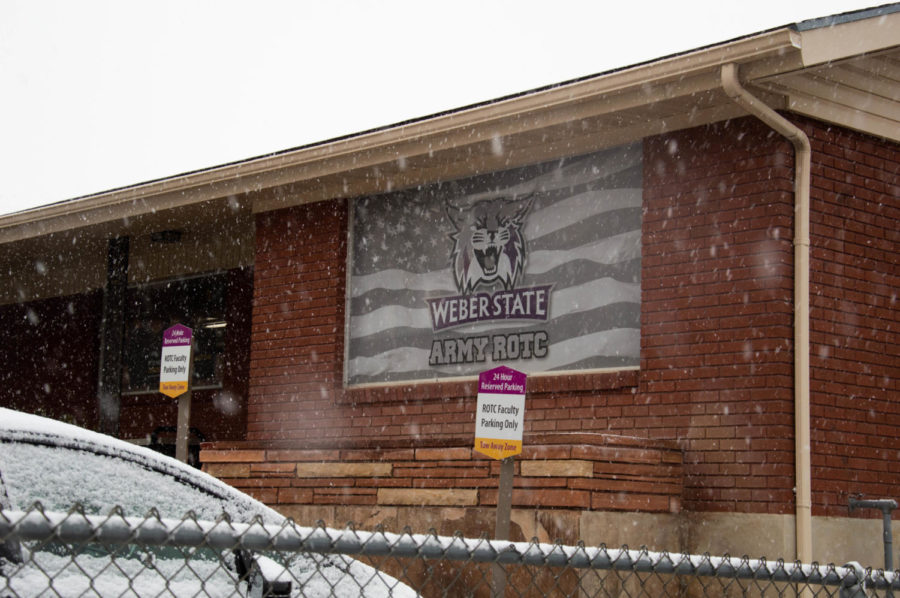FADE IN: A Walmart employee is scanning items. The line is stacked to the back of the store.
Beep. Beep. Beep.
“Oh, that’s only $3.99 at Smith’s,” says the shopper.
Whenever I hear price matching, my spine writhes and I instantly regret ever leaving the house.
We live in a cheap society. I understand that price matching drives competition, which hopefully results in lower prices for everybody, but I hate it.
Since I’ve stopped working for large corporations, my outlook on business has changed. I help run a local business with unique products that can’t be found at other retailers. Yet people still try swindling us to lower prices because large corporations sell similar products for less.
Since my store has integrity, we don’t just lower our prices. We stand by our prices because they are more than fair. If people want to spend less, they will have to shop elsewhere.
I don’t think people consider manufacturing costs, marketing, paying employees, paying bills, shipping and other costs associated with retail. And heaven forbid a retail store make any profit!
Folks, you get what you pay for. Well, usually. If you want the cheaper price, you should be willing to settle for a cheaper product.
We’ll use Walmart and Smith’s as our contenders.
So let’s ignore the fact that you probably think Walmart is some sort of blood-sucking conglomerate out to take over the universe. Just for funsies, imagine it as some ma-and-pa shop.
When a customer checks out, they bring up a competitor’s lower prices and expect Walmart to lower theirs. Fair enough, as this is Walmart’s policy, but it’s completely one-sided.
Sure, Smith’s granola bars might be 30 cents cheaper this week, but what about all the other items in the cart? Shouldn’t price matching, if we’re using Smith’s prices at Walmart, include the items that are more expensive at Smith’s?
Perhaps I hate price matching because it means I have to wait another 10 seconds in line while the cashier puts in the possibly made-up discount.
Oh, wait, no; that’s what price matching used to be like.
Somehow a new full-time job called “coupon clipping” has emerged from the abyss. People will spend 40 hours a week going through newspapers and leaflets to save $30 on their next grocery trip.
Even at minimum wage, that time and effort could be making you $290.
If you’re unfortunate enough to get behind one of these coupon hoarders at the store, I hope you have a portable movie device, because you’ll have plenty of time to dissect the entire Lord of the Rings trilogy. Extended. Twice.
My wife was recently reprimanded by a friend for switching from Comcast. I personally believe Comcast offers the best Internet service around, but their prices are a little too high for us right now.
The friend said if we threaten to leave every six months after the move-in special rates have expired, Comcast will renew the deal to keep us as customers. Apparently a lot of people do this.
But that’s not how the world works. If you want the best service around, you’ve got to pay the price they offer it at!
Try going to La Caille and demanding Sizzler prices. It doesn’t work that way.
We could threaten Comcast every six months, but we believe in paying fair prices for worthwhile services. If we didn’t believe in that tenet, we’d be stuck in an eternal displeasure at others’ opportunities for commerce.
In the customer’s eyes, prices could always be lower. In the retailer’s eyes, prices could always be higher. That’s commercialism, and it’s a system of give and take. You do get to choose where you shop, so you do get to choose your prices.
So to all stores everywhere: if you price-match, please also price-match the more expensive items. It’s only fair, and it might remedy our stingy patrons.
Once stores realize they are consistently losing customers to better deals elsewhere, ideally, they’ll lower their prices all around instead of just on single items. I’m all for more intense retail competition in place of menial retail allowances.
If something is 30 cents cheaper across town, people can pay $1 in gas to save their 30 cents. Or they can learn some retail loyalty and realize they can’t always get the cheapest prices everywhere.
For the best service, you’ve got to be willing to pay their “best” prices. If you’re not willing to do that, you’d better be willing to settle.














